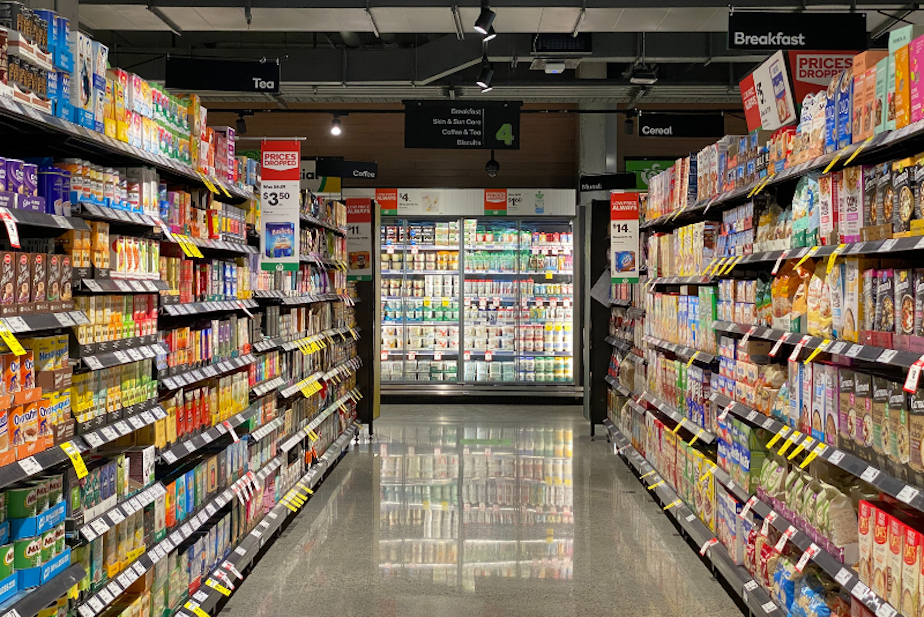Albertsons-Kroger merger is giving shoppers déjà vu

The memory of a 2015 divestiture by Safeway and Albertsons, where stores were sold to a grocery retailer in the Pacific Northwest that then went bankrupt, is leading to extra scrutiny for two of the country's largest grocery chains.
When news broke that two of the largest grocery store chains in the United States were attempting to merge, the scrutiny was quick. Hearings were held in the U.S. Senate, Washington Attorney General Bob Ferguson filed a lawsuit to block payouts to Albertsons' shareholders, and Washington Reps. Pramila Jayapal and Adam Smith sent a letter to the Federal Trade Commission asking for extra scrutiny of the merger.
Albertsons owns Safeway. Kroger owns QFC and Fred Meyer. Together, they make up over half of the grocery store trips in the Seattle area.
In order to make sure this merger doesn't create a grocery store monopoly, the grocery chains will be forced to sell hundreds of locations in a process called divestiture.
If some of this sounds familiar, that's because something similar happen in 2015. That's the year Albertsons and Safeway merged, and the Federal Trade Commission required the two stores to divest and sell some of their stores to increase competition.
So, those two chains sold some stores to Haggen, a grocery store chain headquartered in Bellingham. Less than a year later, Haggen filed for bankruptcy and sold most of their stores back to Albertsons, undermining the initial goals of divestiture.
Sponsored
Divestiture isn't something that people who run chains do out of the goodness of their heart because they want to create a more competitive marketplace. This is mandated by the Federal Trade Commission.
"Those involved in the merger aren't going to say, 'Oh, here are 10 best stores to give you,'" says Hart Hodges, director of the Center for Economic and Business Research at Western Washington University and a professor of economics.
Hodges says that the Albertsons-Kroger divestiture plan would require spinning off a couple hundred stores and then a new company under the Albertsons umbrella would run them. This could potentially head off some of the problems with the Haggen sale, where the Bellingham-based grocer grew from 18 stores in Washington to 164 stores stretching all the way to Southern California before filing for bankruptcy.
Hodges says that memory of that 2015 merger is hard to shake.
"You've got people in some of the smaller communities that were unhappy with that merger and they're now speaking up saying, 'This is going to be a repeat,'" Hodges says, "where divestiture is either not going to work or some communities are going to lose their stores."





